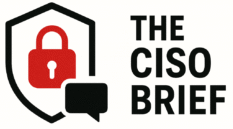Summary Points
-
Launch of CPP: In July 2024, the FCC initiated a three-year Cybersecurity Pilot Program (CPP) with a $200 million budget to support 700 K-12 school districts and public libraries from 2025 to 2028, integrating cybersecurity solutions into the E-rate program.
-
Priority Solutions: The CPP emphasizes key cybersecurity solutions, including Next Generation Firewalls (NGFW), Endpoint Protection, Identity Protection and Authentication, and Managed Detection and Response (MDR), to enhance organizational resilience against cyber threats.
-
Strategic Funding Use: Participants are advised to conduct thorough cybersecurity needs assessments and prioritize solutions that directly mitigate risk, ensuring effective allocation of funding to maximize cybersecurity improvements.
- Best Practices for Readiness: Institutions should implement measures like multi-factor authentication, ransomware exercises, and regular updates to incident response plans to fortify their overall cybersecurity posture beyond the CPP funding.
Key Challenge
In July 2024, the Federal Communications Commission (FCC) unveiled the Cybersecurity Pilot Program (CPP), a groundbreaking initiative aimed at enhancing cybersecurity measures within K-12 school districts and public libraries across the United States. Allocating $200 million in federal funding from 2025 to 2028, the program targets approximately 700 selected applicants to implement essential cybersecurity tools, such as Next Generation Firewalls and Managed Detection and Response services. The CPP not only recognizes the urgent need for robust digital protection in educational settings—historically excluded from such funding—but also seeks to inform future federally funded cybersecurity initiatives.
This initiative is poised to mitigate the rising tide of cyber threats facing these institutions. Preliminary analyses of FCC Form 470 filings indicate a strong emphasis on prioritizing effective cybersecurity solutions aligned with industry best practices. The program encourages schools and libraries to conduct comprehensive reviews of their cybersecurity needs and strategically allocate funds to enhance resilience. Sophos, a key player in this domain, is prepared to support these institutions in navigating the funding process and optimizing their cybersecurity investments. As the CPP unfolds, it promises to redefine how educational entities approach cybersecurity, paving the way for a more secure digital landscape in the future.
Security Implications
The Federal Communications Commission’s (FCC) Cybersecurity Pilot Program (CPP) is poised to significantly enhance the cybersecurity frameworks of K-12 school districts and public libraries, yet its implications transcend these sectors, posing notable risks to other businesses and organizations if they too experience cybersecurity breaches. As schools and libraries fortify their defenses against escalating cyber threats, a ripple effect could arise; stakeholders across various industries might face an uptick in cyber vulnerabilities due to connections with these entities, especially if data-sharing or service relationships exist. In a landscape where interconnected systems are commonplace, a breach in one institution could lead to cascading failures elsewhere, potentially jeopardizing sensitive information, disrupting services, and incurring significant financial liabilities. Furthermore, as institutions prioritize solutions like Next Generation Firewalls and Managed Detection and Response, the competitive nature of cybersecurity resources may constrain availability and increase costs for other organizations seeking similar protections, thereby amplifying their risk exposure. Thus, the effectiveness of the CPP in safeguarding its participants indirectly influences the broader ecosystem, making it crucial for all stakeholders to remain vigilant and proactive in cybersecurity measures.
Possible Next Steps
Timely remediation is crucial to fortifying organizational defenses against cyber threats, particularly in the context of the ‘Strategic considerations for the FCC Cybersecurity Pilot Program – Sophos News.’
Mitigation Steps:
- Conduct risk assessments
- Implement security protocols
- Update software regularly
- Employee training sessions
- Incident response plan
- Threat monitoring solutions
- Data backup strategies
NIST Guidance:
The NIST Cybersecurity Framework (CSF) underscores the necessity of proactive measures and continuous improvement in cybersecurity practices. For more granular details, refer to NIST Special Publication (SP) 800-53, which delineates security and privacy controls essential for system integrity and protection.
Continue Your Cyber Journey
Stay informed on the latest Threat Intelligence and Cyberattacks.
Access world-class cyber research and guidance from IEEE.
Disclaimer: The information provided may not always be accurate or up to date. Please do your own research, as the cybersecurity landscape evolves rapidly. Intended for secondary references purposes only.
Cyberattacks-V1

